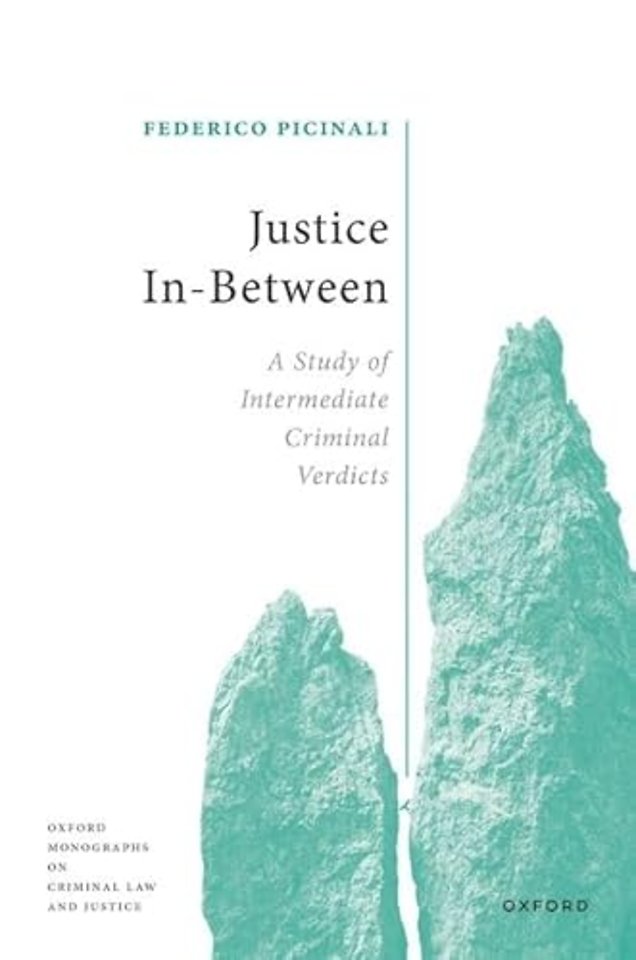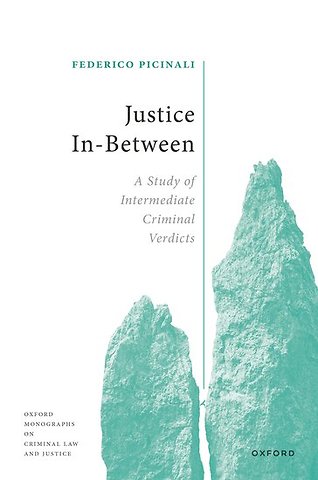



Federico Picinali is Associate Professor of Law, LSE Law School.
Meer over Federico PicinaliJustice In-Between
A Study of Intermediate Criminal Verdicts
Samenvatting
Most contemporary criminal justice systems adopt a 'binary' system of verdicts. In a binary system, there is a single evidential threshold, or standard of proof. If the standard is met, the verdict is 'guilty', the defendant is convicted, and punishment is permitted. If the standard is not met, the verdict is 'not guilty', the defendant is acquitted, and punishment is forbidden. There is no middle ground between the verdict of 'not guilty' and that of 'guilty'. An intermediate verdict represents such middle ground, intermediate between acquittal and conviction both in terms of the strength of the incriminating evidence that is needed to warrant the verdict and in terms of the severity of the consequences that the verdict may produce for the defendant.
Justice In-Between is a study of intermediate criminal verdicts and advances a novel justification of such controversial devices, with the aim to produce a consensus amongst scholars subscribing to different theories of punishment. Indeed, the book shows that one cannot investigate the choice of the standard of proof nor, importantly, that of the verdict system, in isolation from the question of the justification for punishing.
Justice In-Between studies historical and extant examples of intermediate criminal verdicts and engages with the debates that have accompanied them, including the popular argument that intermediate criminal verdicts are incompatible with the presumption of innocence. In doing so, the book offers an original account of the meaning and of the justification of the presumption. Relying on decision theory, Justice In-Between makes a case for intermediate criminal verdicts and shows that such decision-theoretic case is viable under any of the main theories of punishment.
Specificaties
Inhoudsopgave
1:Intermediate Verdicts Are Not a Fanciful Construct
2:The Presumption of Innocence: A Decisive Objection to Intermediate Verdicts?
3:Acquittal vs Conviction: We Can All Be Expected-Value Maximisers in this Choice
4:The Decision-theoretic Case for Intermediate Criminal Verdicts
5:A Battery of Objections
6:Conclusion
Anderen die dit boek kochten, kochten ook
Net verschenen
Rubrieken
- aanbestedingsrecht
- aansprakelijkheids- en verzekeringsrecht
- accountancy
- algemeen juridisch
- arbeidsrecht
- bank- en effectenrecht
- bestuursrecht
- bouwrecht
- burgerlijk recht en procesrecht
- europees-internationaal recht
- fiscaal recht
- gezondheidsrecht
- insolventierecht
- intellectuele eigendom en ict-recht
- management
- mens en maatschappij
- milieu- en omgevingsrecht
- notarieel recht
- ondernemingsrecht
- pensioenrecht
- personen- en familierecht
- sociale zekerheidsrecht
- staatsrecht
- strafrecht en criminologie
- vastgoed- en huurrecht
- vreemdelingenrecht





